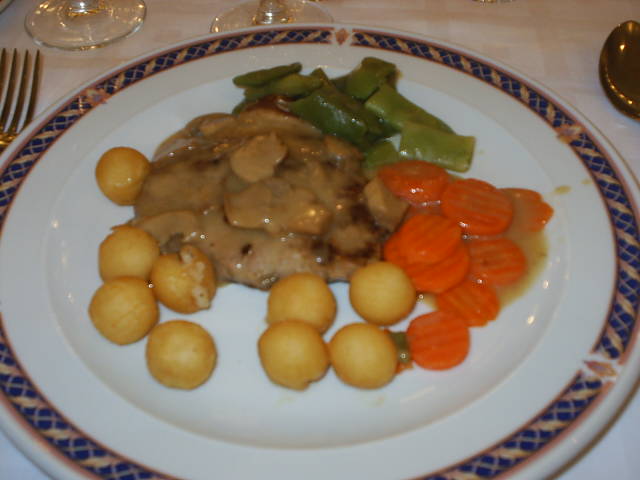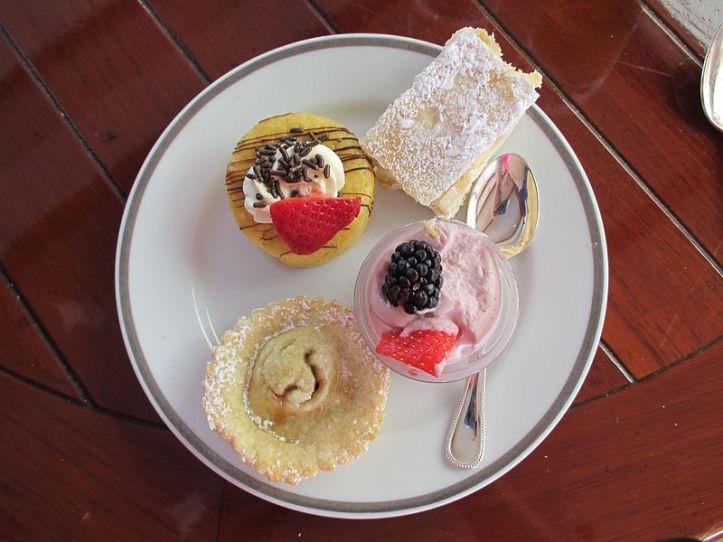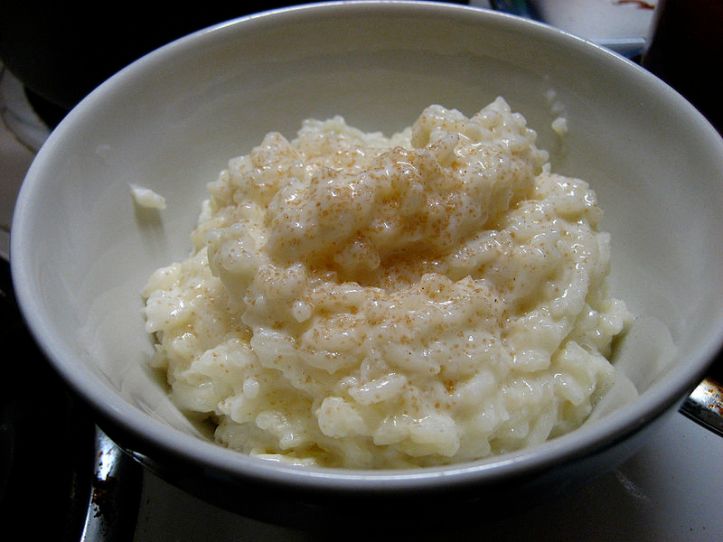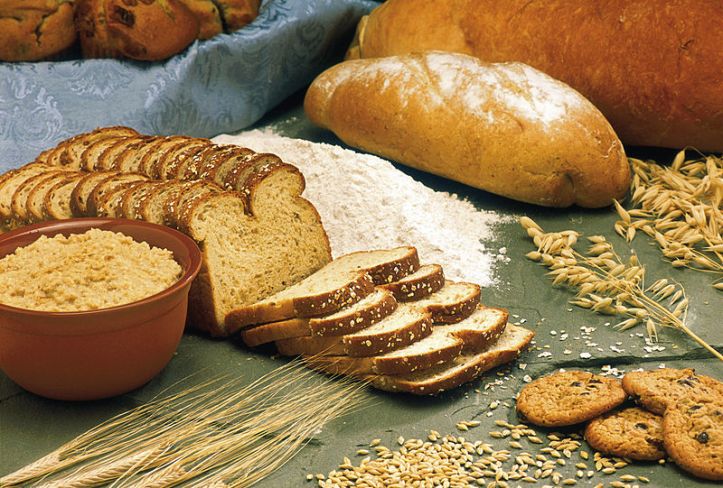Healthier Living

Days gone by, were we healthier?
Breakfast was always eaten, never missed, porridge or wheat bix, followed by a meal just like the image above.
We never worried about what goodness we would get from eating this and that, we ate what was put in front of us, and never asked questions, just thankful we had something to eat.
Most of it was homegrown and home-baked, we never had takeaways, anything like that was cooked at home.

These days we know much more about what makes us healthy and what doesn’t.
We understand good nutrition and exercise, we’ve got powerful drugs and incredible surgical techniques, that can help save and prolong our lives, so we should be much healthier shouldn’t we?
I can honestly save my parents never took me to a doctor in the early years of my life, we didn’t get sick very often, if we did there were all the home remedies, for curing this and fixing that, not like the doctors these days, that you cannot get an appointment until next week, by that time you are better, so that answers the question, “ARE WE REALLY SICK”?

Maybe we should stick to some of the old ways of curing our ill’s and wails.
Eating, exercising and aging healthy is easy to achieve if we look back to the twentieth century and how they lived without all the modern medicines, maybe we should rediscover the way our ancestors survived without all the drugs we have these days.
Were we Healthier In the 1950s?

Photo Credit – Steak and three Vegetables
You would think so, but when we make comparisons to how we lived 60 years ago, it’s surprising to find we don’t necessarily have the upper hand in the fit and healthy stakes.
Rates of diseases like diabetes and heart disease were lower and obesity wasn’t the major problem as it is today, now cancer deaths are taking over heart-related deaths.
In those days we never ever worried about our weight, in fact, we had good eating habits and were much more physically active.
Preparing everything that our family ate from scratch – we could not pull something precooked from the freezer, as a matter of a fact, never had a fridge until 1959, we only had a safe which was outside on the south side of the house, every time you wanted any chilled food you would have to go outside to get it.
You couldn’t open a packet or jar out of the cupboard and pull some precooked meal out, this meant we ate a lot less salt and fewer preservatives, and the large portion of our main meals was homegrown vegetables, which were naturally organic and most times not exposed to pesticides.
A sponge cake was my favorite special treat, made from our own eggs, and jam made from our orchard, with cream taken from the cream-can, we only had this on a special occasion, and that was it a treat I enjoyed.
Yes, our diets were much higher in saturated fat, food was cooked in butter or lard, rather than the so-called healthier oils, and there was no such thing as low-fat dairy products.
Pudding After Main Meal Midday

Our main meal of the day was midday, as we were farmers, we always had pudding after our main meal, but the thing about this is that you could work that big meal off in the afternoon before evening and just have a light tea before retiring for the day.
So you can understand the big healthy Breakfast to start the day, as we never had a heavy meal before retiring for sleep.

Photo Credit – Vanilla Cinnamon Rice Pudding
Never a week went by without having a pudding of sago, tapioca or rice cooked in many different ways.
My best treat for puddings, on special occasions, was sherry trifle.
I still make a trifle for Christmas, my family loves it.
Despite all this, we consumed fewer kilojoules than most of us do today, we never drunk all the flavored coffees, alcoholic beverages and soft drinks that we drink these days – all of which are laden with kilojoules.
Why Our Grandparents Hardly Ever Got Sick
Many of our ancestors of a century or so ago were hardly renowned for glowing good health.
Although infant mortality was high, many women died in childbirth and diseases like cholera, typhoid and influenza wiped out whole families, (like 1919 in NZ – in the flu epidemic, where many thousand lost their lives, which was world-wide).
A recent study shows that Europeans who lived in the 1950s mostly had much stronger immune systems than we do today.
While that is partly to do with their eating pattern, and exercise, it is also down to the yeasts found in the bread they made themselves.

What is Beta Glucan?
Beta glucans are sugars that are found in the cell walls of bacteria, fungi, yeasts, algae, lichens, and plants, such as oats and barley. They are sometimes used as medicine.
These yeasts contain compounds called beta glucans, which can help the immune system to fight off bacteria and viruses, according to research.
Beta glucans are considered to be so effective in boosting our natural defenses that they are being included in several cancer drugs currently being developed.
These days, most yeast-based foods like bread don’t contain beta-glucans because they’re removed during the refining process.
It is suggested to take beta glucan supplements, (as long as you don’t have a gluten problem such as coeliac disease) and eat around 10 servings of organic fruit and vegetables a day to boost your immune systems.
Three Things To Improve Your Health
1. Try cooking as many meals as possible from scratch, using fresh ingredients and no processed foods.
2. Grow some of your own food, even if it’s a few vegetables.
Vegetables can be grown in a container if you have a small section, such as tomatoes, lettuce, carrots, peas, beans, and capsicums.
3. Read the labels on all processed foods, if it contains ingredients like preservatives and additives, don’t eat it.
A wonderful post, Elsie.
I was born in 1950 and can’t remember seeing a doctor until my teens (except for a fall from a neighbour’s backyard shed). My mother cooked all our meals – lots of vegetables (mostly home grown) and a small piece of meat. Sweets weren’t frequent but always special when they came. Breakfasts weren’t hearty like yours; working a farm certainly needed lots of nutrition and bulk to keep you going. Soups with home grown veg and the occasional chook – homegrown and baked dinners with the occasional chook were a staple during winter; memories that bring back wonderful smells! Frozen vegetables, chooks and margarines weren’t even thought of back then and we were all very healthy.
I still today eat lots of veg (some homegrown) a little meat, the occasional fruit especially avocado, and I stay away from take-aways (except when I’m really stretched, which isn’t often) and enjoy a fairly basic diet of the best possible foods.
I’m reminded of that old saying that suits your lifestyle:
Breakfast like a King
Lunch like a Prince
And dine like a Pauper!
LikeLiked by 2 people
Thanks for a wonderful reply to this post, I like that last bit about “Breakfast like a King…”, so very true.
Thanks have a wonderful week.
LikeLiked by 1 person
And you… 🙂
LikeLiked by 1 person
Beautiful food and thought choices, Elsie. Hope we all can take better care of ourselves. Have a wonderful week ahead! xo 💐
LikeLiked by 1 person
Very interesting about the yeasts in the breads. People definitely used to have better immune systems because of more nutrients in the food, more food from scratch, fewer additives, and fewer toxins in and around the home and city. Kids also ran around outside and played in the dirt. Today, allergies are rampant. Even older people who never had allergies are developing them. People’s lives are crazy, and chronic stress takes a toll.
I keep out of doctors’ offices unless absolutely necessary. To control newly-developed allergies and the bacterial respiratory illnesses they can cause if I’m not careful, I eat local unpasteurized honey, ginger, and Indian food.
Thanks for the lovely post and inspiration to continue to cook from scratch, no matter how unbalanced work life gets.
LikeLiked by 2 people
I agree. We eat at home a lot because I want real food–veggies, meats, dairy, etc. If you cook it, you know what’s in it. 🙂
LikeLiked by 1 person
I was born in 1960 and was fortunate that my mother never succumbed to the temptation of the invasion of pre-packed, processed foods that flooded the shelves throughout my childhood at an alarming rate. Therefore I have always cooked from scratch and therefore all my daughters (they number 4) do the same. I think the other thing that has changed is the reliance on cars and public transport rather than our two legs or a bicycle. Exercise has become formalised whereas we used to just do it. I lived a mile and a half from the village up a hill. We didn’t question that we would walk to the shops, the station and friends houses. My best friend lived about three miles away and I pretty much always cycled to her house, she to mine. We just did it. Now we hit the gym (I don’t actually) and we go to yoga classes and Pilates and etc etc, children are taken to football or skating or whatever and not outside in the yard just running and parents too scared to let them out on their own. The combination of eating what we have prepared (and better yet grown) from scratch and being active daily surely is what is missing. I wholeheartedly believe that we have regressed rather than progressed in the decades of my lifetime. Such an excellent article for which I thank you .
LikeLiked by 1 person
I Thank you for reading and commenting, appreciated.
Things for sure had changed, some will say for the better, but the younger generation will never know, as most of them have not lived life in what we call the “good old times’. I do believe they were the good times, far too many laws these days that restrict everyone.
At least we have happy memories, let’s enjoy what years we have left.
Hope you have a great Christmas and may 2018 be your best year yet.
LikeLiked by 1 person
Exactement – how can the young actually know when they didn’t experience the reality. I do believe that history runs in cycles and I remain hopeful that a return to a different way may happen. My warmest wishes to you for Christmas and may you too have the best year yet to come.
LikeLiked by 1 person
A very interesting post Elsie. You and Stevie are on the same wavelength this week. Happy Christmas.
LikeLiked by 1 person
Thanks, wishing you a wonderful Christmas, all the best for the coming year.
LikeLike
Very true thoughts. I really wish we could have bread like it was 100 years ago before refining and the changes farmers have made to the seeds.
LikeLiked by 1 person
YES — we are far less healthy today than in the 1950s. Not only do I agree with you myself, science agrees with you as well. They inform us that this is the first generation *ever* with a life expectancy that is FEWER YEARS than their parents.
Packaged foods and fewer meals prepared from scratch at home are certainly a big part of the problem, as well as the make up of our diets and the food we eat these days: more carbs/fewer vegetables, nutrient depletion in our soils, Roundup and other pesticides IN our foods, GMOs of other sorts, high-fructose corn syrup in practically everything anymore, fast food super sizing – the list goes on and on.
What ARE we doing to ourselves and our planet?
xx,
mgh
(Madelyn Griffith-Haynie – ADDandSoMuchMORE dot com)
ADD/EFD Coach Training Field founder; ADD Coaching co-founder
“It takes a village to transform a world!
LikeLiked by 1 person
I like this “What ARE we doing to ourselves and our planet”?
Yes!!! What is the future health of our children with all the changes in the food cycle?
Thanks for commenting, wishing you all the best for 2018.
LikeLike
I agree that breakfast is essential even when dieting. It allows you the carbs that later you have to control. You burn them off during the daily activities. As a child we always had breakfast, and well balanced meals, plenty of veggies. Today’s children don’t get a well balanced diet. They will pay for that later in life.
LikeLiked by 1 person
Thanks for reading and commenting. I agree also about a well-balanced diet for everyone especially children for them to be healthy adults, but in this busy world many families find it hard to fit everything in their lifestyle, then comes al the teen problems, so sad.
Have a nice day.
LikeLike